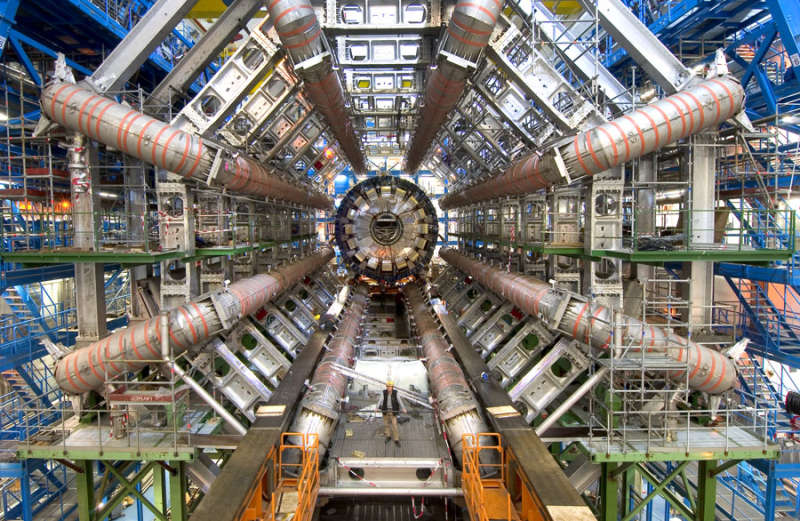Credit & Copyright: Maximilien Brice,
CERN
Explanation:
Why do objects have mass?
To help find out,
Europe's
CERN has built the
Large Hadron Collider
(LHC), the most powerful
particle accelerator
yet created by
humans.
Since 2008, the
LHC smashed protons into each other with
unprecedented impact speeds.
The LHC
is exploring the leading explanation that mass arises from
ordinary particles slogging through an otherwise invisible but pervasive
field of
virtual Higgs particles.
Were high energy colliding particles to create real
Higgs bosons, the
Higgs mechanism
for mass creation will be bolstered.
Last week, two LHC
groups reported on preliminary indications that the Higgs boson might exist
around 120 GeV in mass.
Data from the LHC collisions is also being scanned for
micro black holes,
magnetic monopoles,
and explore the possibility that every type of
fundamental particle
we know about has a nearly invisible
supersymmetric counterpart.
You can help -- the LHC@Home
project will allow anyone with a home computer to help
LHC scientists
search archived LHC data for these strange beasts.
Pictured above,
a person stands in front of the huge
ATLAS detector,
one of six detectors attached to the
LHC.
1999 2000 2001 2002 2003 2004 2005 2006 2007 2008 2009 2010 2011 2012 2013 2014 2015 2016 2017 2018 2019 2020 2021 2022 2023 2024 2025 2026 |
Yanvar' Fevral' Mart Aprel' Mai Iyun' Iyul' Avgust Sentyabr' Oktyabr' Noyabr' Dekabr' |
NASA Web Site Statements, Warnings, and Disclaimers
NASA Official: Jay Norris. Specific rights apply.
A service of: LHEA at NASA / GSFC
& Michigan Tech. U.
|
Publikacii s klyuchevymi slovami:
uskorenie chastic - Higgsovskii bozon
Publikacii so slovami: uskorenie chastic - Higgsovskii bozon | |
|
Sm. takzhe:
| |
